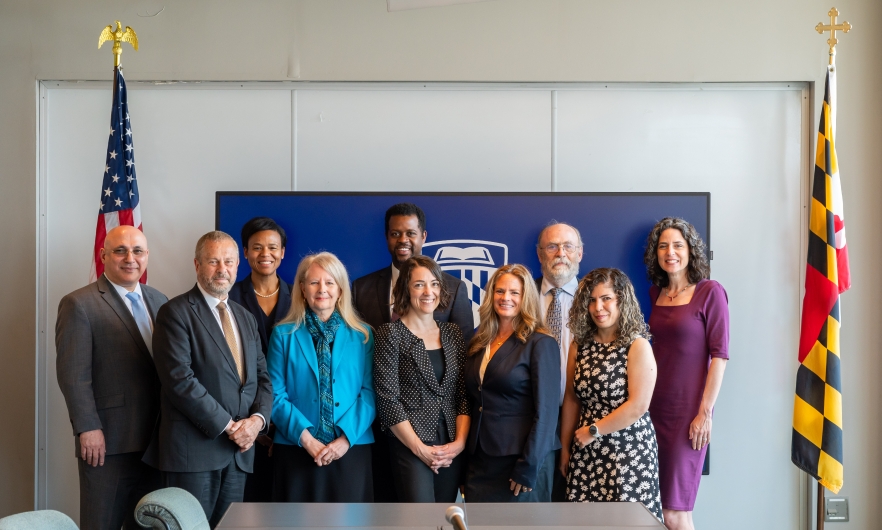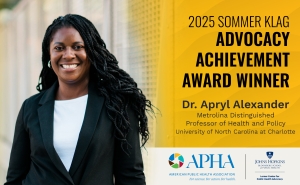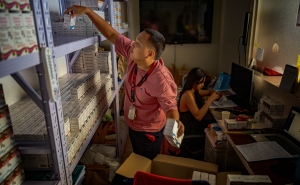A Healthier, Climate-Smart Way Forward for Transportation
Researchers say physical and mental health, as well as access to jobs, healthy food, and health care must be considered when making transportation decisions

Johns Hopkins researchers, lawmakers, and government officials met on June 17 at the Johns Hopkins Bloomberg School of Public Health to discuss evidence-based approaches to make both climate health and human health a pivotal part of national transportation infrastructure decisions.
“Transportation is the number one producer of greenhouse gas emissions in the U.S.,” said Shima Hamidi, director of the Johns Hopkins Center for Climate-Smart Transportation. “It’s just going to get worse unless we can come up with actionable research—research that is ready to be implemented, ready to be translated into changes in policy and practice.”
Researchers also stressed that physical and mental health, as well as access to jobs, healthy food, and health care must be considered when making transportation decisions: “Clearly human health and transportation intersect,” said Ed Schlesinger, dean of the Whiting School of Engineering and moderator of the roundtable discussion.
Topics of discussion also included:
- Narrowing road lanes to allow for more walking and biking, while reducing asphalt and the risk of collisions.
- Fostering the adoption of electric vehicles, with equitable access to charging stations, and sustainable expansion of the power grid.
- Using automated vehicles to bring fresh food to people throughout urban areas.
- Investment in public transportation to improve access to jobs, health care, school, and other opportunities.
- Reducing air pollution from transportation—particularly in vulnerable neighborhoods.
- Conducting health impact assessments to understand the relationships between transportation and health.
Robert Hampshire, deputy assistant secretary for research and technology and chief science officer at the U.S. Department of Transportation, noted that the $1.2 trillion bipartisan infrastructure law has spurred “one of the biggest buildouts of physical infrastructure to improve communities.”
“We really are, on the research and technology side, making sure that we’re using the best evidence that we have to do that, particularly on the resilience and climate side,” Hampshire said.
He and Gretchen Goldman, climate change research and technology director in DOT’s Office of Research and Technology, noted that the Biden-Harris administration is eager for input from researchers on the best projects that will advance transportation, climate, and health goals forward in ways that are mindful of their many intersections.
Keshia Pollack Porter, chair of the Department of Health Policy and Management, said it’s important to ask questions when considering projects to ensure a health equity lens is applied.
“Whether we’re thinking about where to put charging stations for EVs or even strategies related to the Key Bridge [collapse], how do we think in advance about how those strategies ... advance health equity and not harm health?”
The discussion highlighted the importance of collaboration across fields and with affected communities.
“It’s a multi-player, multi-objective problem, and so the only way you [solve that] in a way that is equitable and robust is if you have everyone together,” said Ben Zaitchik, a professor of Earth & Planetary Sciences at Johns Hopkins University.
The Center for Climate-Smart Transportation launched in 2023 with a $10 million grant from the U.S. Department of Transportation as a consortium of six institutions including Johns Hopkins University, Massachusetts Institute of Technology, University of Texas at Austin, University of Utah, Morgan State University (MSU), and Diné College.





